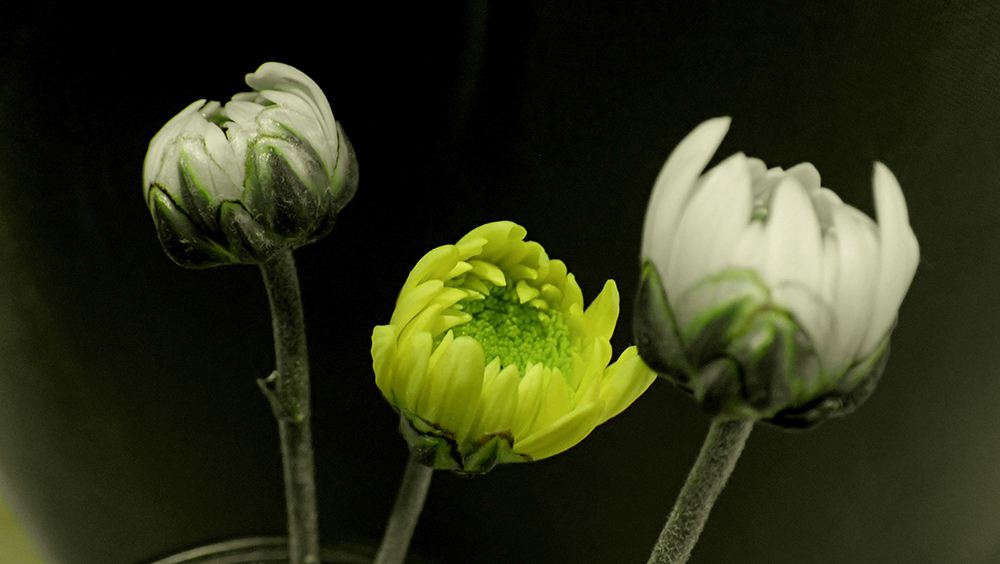
(Dreamstime/Kevin Oke)
As I clicked the bright "submit" button, I felt proud. I did something. As little as it might have been, it was done in the name of justice. For me, it was in the name of Jesus.
My computer redirected me to a new page on the website. This one listed more environmental petitions. The prompt encouraged me to choose another to sign, but I paused. Scanning the list, I wasn't sure if I agreed with all of the other petitions popping up. Some even contradicted each other!
It hit me that the version of justice I support isn't always the version of justice the world supports. And just as pertinent, there were quite a few issues on which I wasn't even sure where I stood as a follower of Jesus. How could I be a seeker of justice, an activist for restoration and embodied love, when so much termed "justice" felt morally murky? Was everything deemed "justice" actually good?
Over the years, the majority of my worries about pursuing justice have thankfully faded. Three paths now help me to approach justice as a follower of Jesus when justice feels unclear.
1. Trust God in the gray.
More than a decade after I found myself befuddled by an environmental petition list, I found myself asking the same questions about a different issue. People all around were pressuring me to choose a side on reproductive justice, but I couldn't. I care about the rights of the vulnerable unborn and the rights of the vulnerable woman. Was it possible to stand for both?
I have become comfortable with nuance and uncertainty. Living justly frequently requires us to sit with tension, where our only answer is God's nearness.
The question was personal — I had an unwanted pregnancy that I was coming to terms with. Just as unexpectedly, my body began to collapse and I was diagnosed with systemic lupus. Every system in my body was affected and the autoimmune disease was rapidly attacking my kidneys. The prognosis wasn't good for me, nor my unborn.
Twenty hospital admissions later, with a broken body and a PTSD-riddled mind, I assure you that I and my family had become intimately acquainted with the consequences of refusing to choose a side. And yet, we were celebrating. My lupus nephritis was going into remission and we had a healthy, active, tiny boy!
I became living proof that I could sit with the tension of something that previously I had tried to define with clear strokes. The only thing clear about this season of pain and uncertainty was that my faith was an anchor. And although we prayed for healing and wholeness — in the next life if not this one — my hope wasn't tied to the outcome. I clung to faith not to define justice, but to remind me that God was still Emmanuel in the gray.
Now, I look back at the girl frustrated and confused by her list of petitions with more grace. I have become comfortable with nuance and uncertainty. Living justly frequently requires us to sit with tension, where our only answer is God's nearness.

(Unsplash/Carla Quario)
2. Do the something that you can.
When I ran anti-trafficking organizations, in my speeches I'd share the anonymous quote, "The only thing necessary for the triumph of evil is for good men to do nothing." To inspire, I'd share my own stories of stepping into the movement, while calling the audience to face their own indifference. Reminding them that inaction is a type of action motivated my audiences.
I didn't have to convince people slavery was wrong. I only had to show them how it still exists and give them a way to act.
But when I speak to audiences about a social issue they haven't theologically examined or only have a loose framework for, inspiring them to respond is like trying to move a mountain. Environmentalism falls under this umbrella, often deemed as something "liberals" care about rather than as something God cares about. I had to find a new tactic.
In the case of environmentalism, I could say, 'Let's put the debate about global warming aside. We agree God gave us the responsibility to care for creation. What can we do today to care for it?'
When our brains filter information about a justice issue through black and white filters, they become hijacked by the question, "What do you believe about this?" If we instead ask, "What do you believe that is relevant to this?", we can align with what people believe is true.
In the case of environmentalism, I could say, "Let's put the debate about global warming aside. We agree God gave us the responsibility to care for creation. What can we do today to care for it?"
A potential advocate's views often mature as they engage with an issue. Inviting others into the water we all agree on — however shallow — is more effective than pushing people into the deep end when they don't want to get wet.
An added benefit to using this "action on what we agree on" tactic is that these invitations foster belonging to a social group of others who care about creation. This in turn deepens connections and increases action.
Advertisement
3. Look for the living God.
There are people who believe that Catholics have no place signing petitions, as if all forms of activism are secular, all far from God's justice. Our parishes each preach a version of biblical justice, and sometimes we get so focused on proving that the Bible is for or against a cause that we lose our focus on God. However, God's Word isn’t dormant on Scripture's pages.
Justice is alive! And we are called daughters and sons, friends, brothers and sisters of justice. God hasn't left justice to be governed by bickering theologians nor by pop culture. God has not left us as orphans in a world bent on defining justice for us. God is the path.
In approaching justice, we can get stuck asking, "What is good?", when the question we need to be asking is, "Who is good?" The spirit of God is our guide to loving mercy, walking humbly and living justly. Justice happens with God and because of God.
With our confidence placed in whom it should be placed, we can walk these three paths of justice-finding peace.







